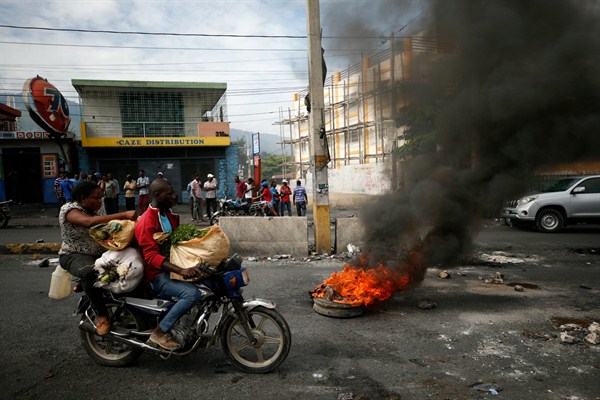Violent protests in Haiti have paralyzed much of the country, as demonstrators vent their anger at ongoing, severe fuel shortages and widespread corruption at the highest levels of government. In a pre-recorded television address that aired at 2 a.m. last Wednesday, President Jovenel Moise called for national unity and dialogue with the opposition, but that appears to have done little to assuage the protesters, who say they will not rest until Moise steps down. In an email interview with WPR, Vincent Joos, an expert on Haiti at Florida State University, discusses the roots of the political and economic crisis in the country.
World Politics Review: What is causing the fuel shortages that are one of the main drivers of the protests in Haiti?
Vincent Joos: Since 2008, Haiti had purchased oil from Venezuela through the Petrocaribe program, an agreement that enabled many Caribbean states to buy oil on very generous payment terms. The idea was that by deferring payment on the oil they bought for up to 25 years, participating countries could allocate more of their budgets to social and economic development. However, Venezuela’s oil production has plummeted under President Nicolas Maduro, leading to severe cutbacks in the Petrocaribe program. By March 2018, Venezuela had stopped shipping subsidized oil to Haiti. That meant Haiti’s government needed to rely on the more expensive global market to buy oil.

